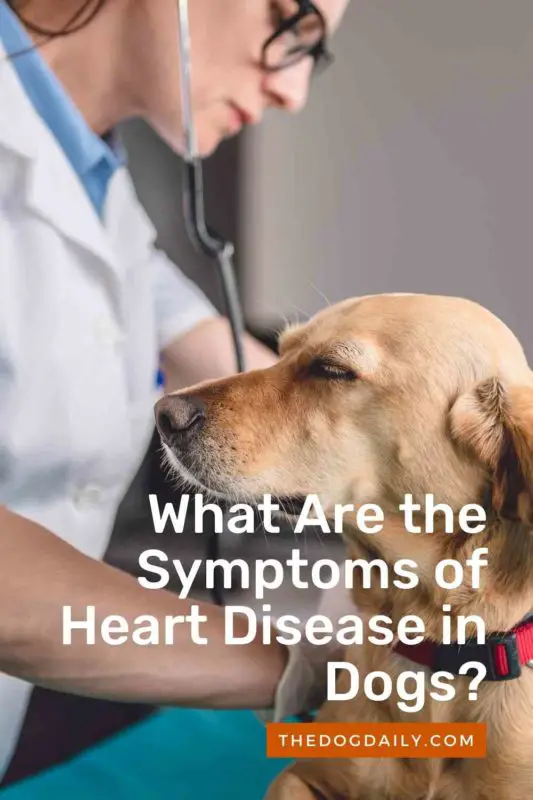How Prevalent is Heart Disease in Dogs?
On a percentage basis, more dogs than people suffer from heart disease. According to Novartis Animal Health, a Switzerland-based healthcare company, 25 percent of dogs aged over seven have the most extreme heart disease form, heart failure. By contrast, the National Institutes of Health estimates that only 6.4 percent of men and 2.5 percent of women between the ages of 65 and 74 suffer from the same condition.
Heart Disease and Dogs
While both dogs and people can get heart disease, the reasons they acquire these conditions differ.
“With human beings, it’s a matter of lifestyle putting on weight, not eating properly and not exercising,” explains Dr. Deborah Fine, assistant professor of cardiology at the University of Missouri-Columbia College of Veterinary Medicine. “With dogs, what we see is mostly caused by genetics or breed susceptibility.”
There are various ways of ensuring a healthy heart for your dog. However, before making any changes in your dog’s lifestyle or diet, it is fundamental that you consult with your veterinarian. Take a look at these significant factors that determine dog heart health, and prepare to talk to a specialist if you’re worried about anything.
Healthy Diet For Your Dog’s Heart
Nutrition is essential for your dog. A balanced diet is necessary to develop a healthy, strong heart and ensure a long life. Dogs with a poor diet will suffer the consequences.
Firstly, it is vital to purchase high-quality dog food that includes the right nutrients and minerals essential for the growth of a fit, functional heart. Many low-cost options will not have the required vitamins for your dog to develop healthy heart muscle. It is better to invest in premium dog food from the beginning to save on possible consequences.
Please do not overdo it with treats. If your dog is in training, use the specially designed training treats. These are small and do not take away from their regular eating regime.
Finally, if you think your dog could be overweight, it could be at a higher risk of developing a heart problem. It would be advantageous to speak to a veterinarian about establishing a diet plan to reduce their size.
Healthy Lifestyle For Your Dog’s Heart
Exercise is indispensable in your dog’s life. Dogs need a daily activity that helps maintain a healthy weight and bodily functioning. Generally, dogs love to participate in frequent cardio exercises, such as running, walking, hiking, swimming, and even agility training. These types of activities help your dog to maintain a healthy heart.
Additionally, you must schedule regular check-ups at the veterinarian with your dog. Dogs age faster than humans, and that includes their hearts. This aging rate is why it is paramount to take your pet to the veterinarian’s clinic at least twice a year. This way, the veterinarian can make sure that s/he is in optimum fitness.
Prevention and Care of Dog Heart Disease
It may seem odd to mention dental care when talking about heart health, but it is much more important than you might think. Dental infections and plaque can enter the bloodstream from the mouth and make their way to the heart, causing more debilitating illnesses. Actively check out your dog’s teeth and gums from time to time. Keep an eye out for anything unusual, such as bleeding, bad breath, or excess drooling.
Heartworm is a severe disease spread through mosquito bites. It is essential to use veterinarian-approved products to prevent infection because this disease can have dire consequences. Heartworm can lead to inflammation, restricted blood flow, pulmonary embolism, lung disease, and heart failure.
Watch Out for Symptoms
There are several symptoms that dog-owners should be aware of to look out for heart problems. Some breeds are predisposed to having heart disease, and others may be more likely to develop one type. It is essential to research your pet’s breed to stay informed on any heart issues.
The following is a list of common symptoms of heart problems in dogs:
- Shortness of breath
- Weight loss
- Fatigue
- Fainting
- Coughing
- Swollen abdomen
- Lack of appetite or ability to exercise
Early detection of heart problems is ideal, so it’s essential to look out for these signs in your dog. If your dog is suffering from these symptoms, make an appointment with your veterinarian straight away. To find out what is going on with your dog’s heart, the veterinarian will run specific tests. These tests can include a physical exam to listen to the heart and lungs or an ultrasound or x-ray to see the heart muscle physically. They could also check their blood pressure check or do an EKG to discover any arrhythmias. Finally, they may do blood or urine analysis to determine what levels of chemicals are in their system that could negatively affect heart function.
Common Heart Diseases in Dogs
The two most prevalent canine heart diseases — dilated cardiomyopathy (DCM) and mitral valve disease — are believed to be at least partially hereditary.
DCM and mitral valve disease cripple the heart in different ways. DCM causes swelling of one of the heart’s lower chambers, which are called ventricles. The left ventricle is affected more often than the right. “The ventricle changes from a football shape to a basketball shape,” explains Dr. Fine. “This weakens the ability of the heart to pump blood. The heart becomes large and flabby and beats weakly.”
Mitral valve disease attacks the valves that serve as doorways between the heart’s upper chambers, called atria, and the ventricles. The valves deteriorate to the point that they don’t close completely. Failure to close allows blood in the ventricle to flow back to the atrium instead of the rest of the body. Consequently, the heart must work harder than usual to pump enough blood to meet the dog’s needs.
Symptoms of Heart Disease in Dogs
With either condition, a dog may not show outward symptoms for years. Eventually, though, the dog shows signs that all is not well. Those signs can include:
- Lethargy
- Appetite loss
- Coughing, especially during exercise or excitement
- Gasping for breath
- Fainting or collapsing
- Gradual abdominal swelling
Although these signs can signify the onset of heart failure, they also mimic other conditions. For example, if the heart’s left side fails, fluid backs up into the lungs, but other conditions can do that too. That’s why a dog with these symptoms needs a thorough examination with appropriate testing. “You need a chest X-ray to confirm left-side heart failure,” says Dr. Fine. “Fluid in the lungs could also be pneumonia, bronchitis, or fibrosis of the lungs.
At-Risk Dog Breeds for Heart Disease
Due to inherited genes and as a consequence of breeding, DCM usually affects large or giant breeds, especially:
Mitral valve disease, again due to genetics and breeding, affects a disproportionate number of small breeds, including:
- Cavalier King Charles Spaniels
- Chihuahuas
- Toy Poodles
- Maltese
- Bichon Frise
- Beagles
- West Highland White Terriers
Both diseases generally strike dogs mid-life or later, except for the Cavalier King Charles Spaniel, which can show signs of mitral valve disease at just two years of age.
Caring for an At-Risk Dog
If your dog is one of the more susceptible breeds, expert monitoring from an early age is a good idea. For example, some experts believe that every Doberman Pinscher older than one year should receive an annual electrocardiogram because DCM is especially prevalent in that breed. Similarly, other experts recommend that Cavalier King Charles Spaniels receive yearly screenings for mitral valve disease. Such monitoring won’t prevent either condition, but it can lead to earlier, more aggressive treatment that can improve a dog’s quality of life and even lengthen it. “With heart disease, it’s not just about living longer, it’s about living better,” says Dr. Fine.
You can help your dog live better too. In addition to aggressive monitoring for early detection, good home care can keep a dog comfortable longer. If heart failure hasn’t occurred, “Keep your dog active, maintain a healthy diet and a healthy weight,” suggests Dr. Fine. “Excess weight makes the heart work harder.”
Treatment Options for Dogs with Heart Disease
Once a dog has been diagnosed with heart failure, treatment focuses on controlling symptoms and the condition’s progression. A veterinarian may start treatment by prescribing a diuretic to reduce the dog’s fluid level and an ACE inhibitor, which levels
blood pressure to better help the diuretic work. A dog with right-sided heart failure may also undergo abdominocentesis, a procedure in which the veterinarian inserts a needle into the abdomen to withdraw excess fluid. A dog with DCM may be prescribed medications to help the heart contract more normally.
Because these conditions aren’t curable, owners may question whether treatment is worthwhile. Dr. Fine responds, “I always encourage people to try therapy (treatment) because the medications can help their dogs return to their old selves. Give it a few weeks — the vast majority of dogs do much better.”
Article written by Author: Susan McCullough and The Dog Daily Expert

